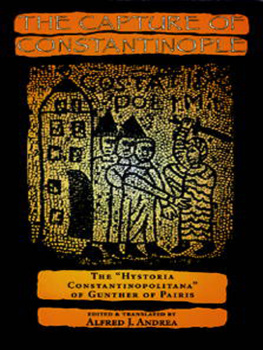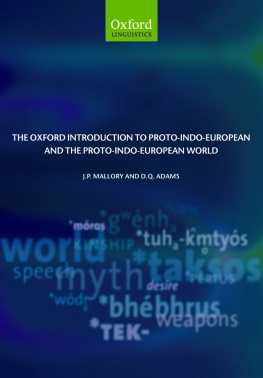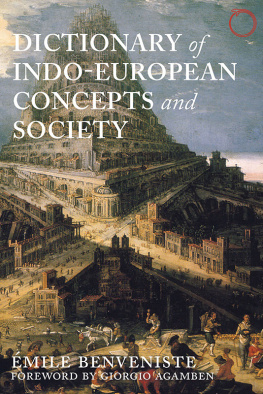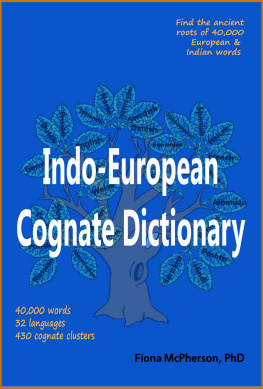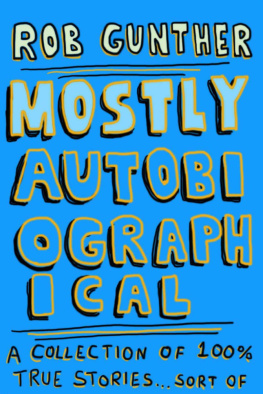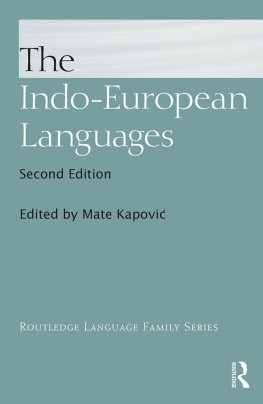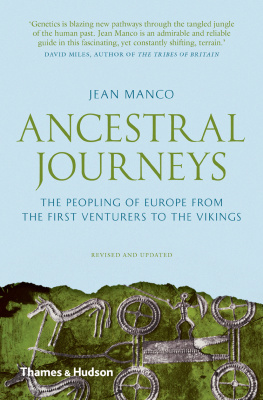Hans F. K. Gunther - The Religious Attitudes of the Indo-Europeans
Here you can read online Hans F. K. Gunther - The Religious Attitudes of the Indo-Europeans full text of the book (entire story) in english for free. Download pdf and epub, get meaning, cover and reviews about this ebook. year: 0, genre: Religion. Description of the work, (preface) as well as reviews are available. Best literature library LitArk.com created for fans of good reading and offers a wide selection of genres:
Romance novel
Science fiction
Adventure
Detective
Science
History
Home and family
Prose
Art
Politics
Computer
Non-fiction
Religion
Business
Children
Humor
Choose a favorite category and find really read worthwhile books. Enjoy immersion in the world of imagination, feel the emotions of the characters or learn something new for yourself, make an fascinating discovery.

- Book:The Religious Attitudes of the Indo-Europeans
- Author:
- Genre:
- Year:0
- Rating:5 / 5
- Favourites:Add to favourites
- Your mark:
- 100
- 1
- 2
- 3
- 4
- 5
The Religious Attitudes of the Indo-Europeans: summary, description and annotation
We offer to read an annotation, description, summary or preface (depends on what the author of the book "The Religious Attitudes of the Indo-Europeans" wrote himself). If you haven't found the necessary information about the book — write in the comments, we will try to find it.
The Religious Attitudes of the Indo-Europeans — read online for free the complete book (whole text) full work
Below is the text of the book, divided by pages. System saving the place of the last page read, allows you to conveniently read the book "The Religious Attitudes of the Indo-Europeans" online for free, without having to search again every time where you left off. Put a bookmark, and you can go to the page where you finished reading at any time.
Font size:
Interval:
Bookmark:
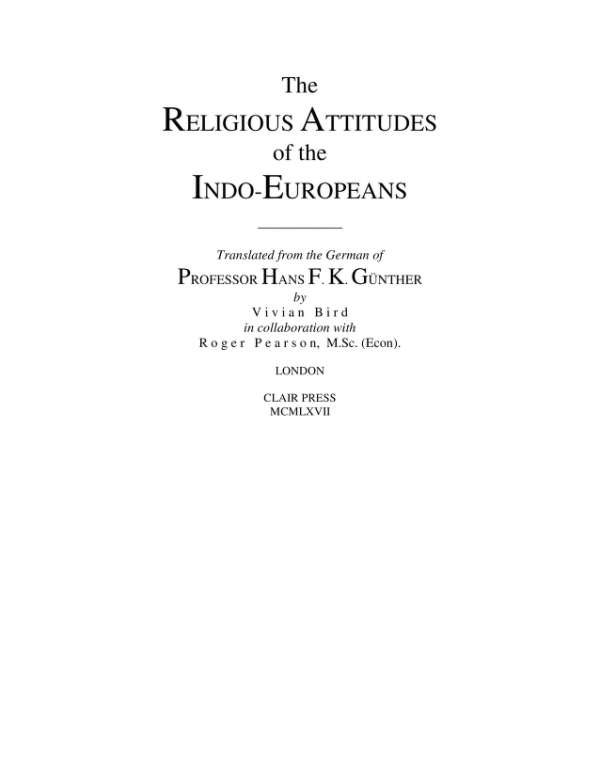
"The nobly born must nobly meet his fate." Euripides
"Courage leads to heaven, fear to death." Seneca
"There they stood... the immortals who are the source of all our blessings."
Homer: Odyssey
The Religious Attitudes of the Indo-Europeans
CONTENTS
author's foreword
Chapter One
Chapter two
chapter three
Chapter four
Chapter five
Chapter Six
Chapter Seven
Chapter eight
references
F.
OREWORD
to the Sixth German Edition
I HOPE that the re-appearance of this work after almost thirty years, may help the younger generation to give more attention to the religious history of the whole of the Indo-European area, in contrast to previous generations, for a better knowledge of the Indo-European world will lead the West (to which North America belongs), towards self-realisation. Heraclitus, as Aristotle reported (Concerning the Parts of Animals, I, 5, 645), instructed strangers visiting him, who hesitated on his threshold, to draw closer to him with the words: "Enter, for here the Gods also dwell!" May this work, in its present edition, express a similar invitation.
If, in our era of the "Decline of the West", the last remnants of the Western Indo-European peoples are submerged due to the dearth of true-blooded Nordics, then nevertheless the last few survivors will retain that same Indo-European conviction which supported and inspired the "last Romans" (Romanorum ultimi), who witnessed the conversion of the aristocratic Roman republic into the "de-Romanised" empire the proud belief in inflexible and unyielding courage before destiny, which will be portrayed in this work as characteristically Indo-European, and above all Nordic an ideal which Horace also described in the words:
Quocirca vivite fortes,
Fortiaque adversis opponite pectora rebus!
(Sermones, II, 2, 135/36)
HANS F. K. GUNTHER
Bad Heilbrunn; Early Spring 1963.
Chapter One
Freedom is where you can live, as pleases a brave heart; where you can live according to the customs and laws of your fathers; where you are made happy by that which made your most distant ancestors happy. E. M. Arndt, Catechism for the Teutonic Soldier and Warrior, 1813.
IN this work I want to advance some reflections on the religiosity of the Indo-Europeans that is to say, the Indo-European speaking peoples originating from a common Bronze Age nucleus who have always exerted a significant influence on the government and spirit of predominantly Nordic races. 1 Just as by comparing the structure of the Indian, Persian, Sacaean, Armenian, Slavic and Baltic languages, and of the Greek, Italian, Celtic and Teutonic dialects, we can reach a conclusion as to a common or primal Indo-European language, approximating to the latter part of the early Stone Age, in the same way, an examination of the laws and legal customs of the different peoples of Indo-European language reveals a primal Indo-European feeling for law. Similarly, from a comparison of the religious forms of these peoples we can identify a particular religious attitude emanating from the Indo-European nature a distinctive behaviour of Indo-European men and people towards the divine powers.
So it is that certain common religious attitudes, which originally were peculiar to all peoples of Indo-European language, reveal the identity of an Indo-European religiosity. But since in fact all Indo-European nations represented different types moulded on the spiritual pattern of the Nordic race, the origin of these common religious attitudes may be identified in a religiosity which is characteristically Nordic, emanating from the spiritual nature of the Nordic race. 3
It is fortunate that for our knowledge of this Nordic religiosity, we do not have to rely solely upon Teutonic religious forms, 4 for the information we possess about the Teutonic forms of belief is regrettably inadequate. It is all the more incomplete as it is derived from a late period in the development of these forms, which had already been influenced by religious ideas from Hither-Asia, from the Mediterranean basin and from the Celtic west of Europe, where the Druids had begun to distort the ancient Indo-European religiosity of the Celts so that they no longer bore a purely Nordic stamp. The Teutonic Gods, the Aesir (cf. Oslo, Osnabruck, in High German: Ansen, cf. Anshelm, Ansbach), had already absorbed the Vanir who had spread from south-east Europe (F. R. Schroder: Germanentum und Alteuropa, Germanisch-Romanische Monatsschrift, XXII, 1934, p. 187), without thoroughly re-interpreting them in a purely Teutonic spirit. Likewise, from south-east Europe and Hither-Asia, the God Dionysos had been accepted among the Olympian Gods without being fully re-interpreted, even being found in Homer, and only later becoming a native blond God instead of an alien, dark-haired one. The pre-Christian
Teutons have with justice been compared with the Achaeans, who were their nearest relatives, and it can be shown that much that the Hellenes incorporated into their belief and religiosity in post-Homeric times was more or less alien to the Indo-European spirit, as for example the Orphic mysteries. Thus late on in their period of pagan development the Teutons had accepted much that was contradictory to the Indo-European nature. What non-Indo-European or non-Teutonic characteristics have been imparted to the Teutonic God Odin (Wodan, Wuotan)? Odin, with his strange blend of "loftiness and deception", is undoubtedly no longer the ideal example of an Indo-European or Teutonic God, and his worship is no longer characteristic of the Indo-European or the original Teutonic religion. Already one perceives in him the voice of an alien, non-Nordic race.
One must ask how much of Odin's character can be explained from Teutonic folk belief, how much is later poetical embellishment, and how much reaches back, as with Zeus or Jupiter, into antiquity and the Indo-European conception of the "Father of the Heavens". We must not overlook the fact, stressed by Andreas Heusler in Germanentum (1934, pp. 95-106 and cf. also Erik Therman: Eddan och dess Odestragik, 1938, pp. 65, 105, 106) that "the Edda mythology is largely a Norwegian-Icelandic poetical creation of the Viking era", elaborated by the poets who dwelt at the courts of local Norwegian princes during the late pagan and early Christian era, at a time when many Teutons were uprooted from their native soil and exposed to alien ideas. According to Heusler, Odin is a "new creation of Teutonic religious phantasy", and above all, a God of war and of the Viking princes, warriors and skalds. However, as a war God, Odin is an incalculable force to reckon with, "capable of deceit", as R. L. M. Derolez informs us (De Godsdienst der Germanen, 1959, p. 79).
The worship of Odin (Wotan or Wuotan in the High German form) spread from west Scandinavia during the warlike Folk Wandering and Viking era to the Vandals and Langobards, and to the Saxons in Lower Saxony and in England, but it always predominantly appealed to the local princes and their retinue and to the skalds of the princes' courts, to whom the war God was also the God of poetry. Perhaps it is the name which is the unique feature of Odin that reaches back into Indo-European antiquity, for its root is derived from the Indo-European word vat meaning "to be spiritually excited", and as such it is still preserved in Sanskrit, in old Iranian and in Latin, where it corresponds to the word vates, meaning a seer or a poet.
The concept of Odin-Wodan appears at its highest form in the grandiose Edda mythology of the twilight of the Gods, the end of the world, Ragnarok, but it is an expression more of poetry than belief. The yeoman freeholders on their hereditary farms, who formed the majority of the Teutonic peoples, were never at ease with the cult of Odin or Wodan (Karl Helm: Wodan; Ausbreitung und Wanderung seines Kults, Giessener Beitrage zur deutschen Philologie, Vol. LXXXV, 1946; R. L. M. Derolez: De Godsdienst der Germanen, 1959, pp. 79 et seq.). According to Erik Therman (op. cit., pp. 23, 77, 106), many sagas of the Gods of the Edda and also of Odin do not belong to the folk belief of the Teutons, but instead are an expression of the ideals and concepts of the Viking nobility and of the local North Teutonic princes.
Font size:
Interval:
Bookmark:
Similar books «The Religious Attitudes of the Indo-Europeans»
Look at similar books to The Religious Attitudes of the Indo-Europeans. We have selected literature similar in name and meaning in the hope of providing readers with more options to find new, interesting, not yet read works.
Discussion, reviews of the book The Religious Attitudes of the Indo-Europeans and just readers' own opinions. Leave your comments, write what you think about the work, its meaning or the main characters. Specify what exactly you liked and what you didn't like, and why you think so.


